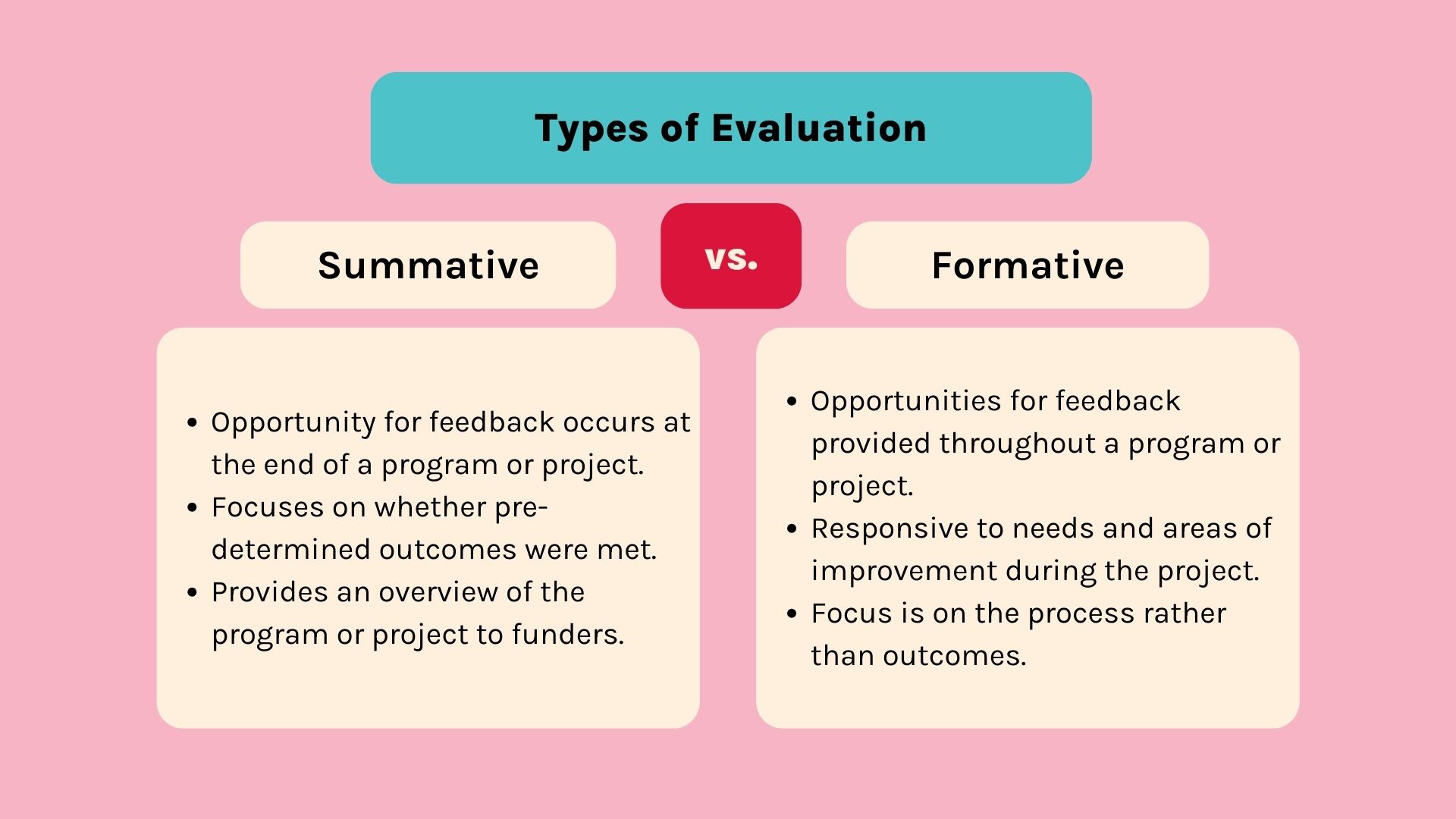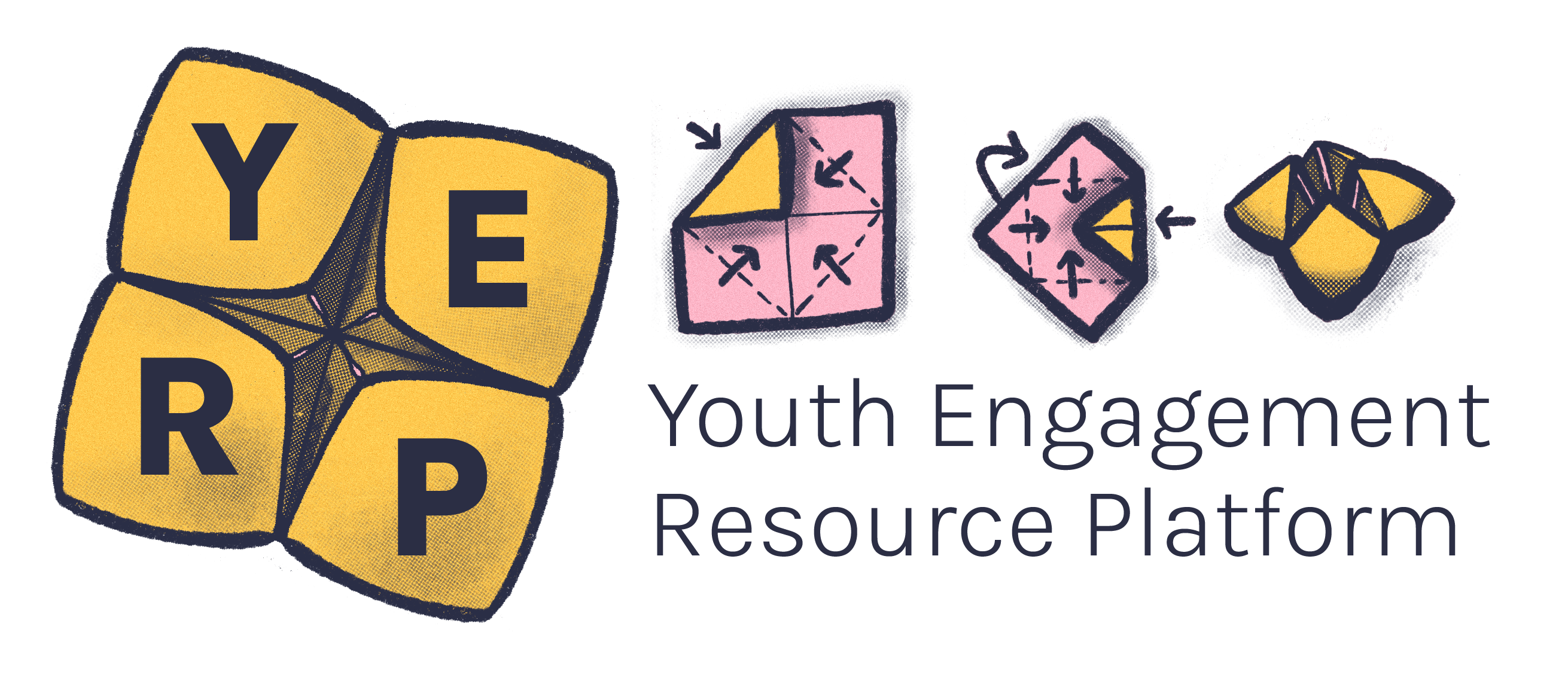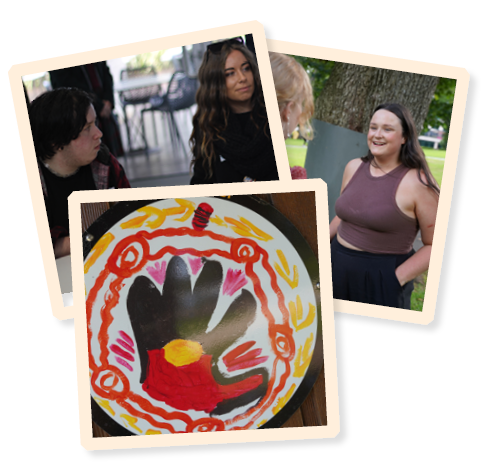Evaluation is a key part of youth participation.
It involves building data for a project, program or activity to find out what worked and what didn’t, as well as providing a record of indicators, and evidence of success.
Evaluation is done best when young people are part of the process and involved throughout the life of the project, from start to finish.
The information from the evaluation can be used to help build an evidence base to improve the program and organisation and can also demonstrate outcomes to funders and the community.
There are generally two main approaches to evaluation – summative and formative.
-
Summative evaluation – this approach summarises what happened, usually to justify your actions to a funding body or stakeholder. It generally sees evaluation as the final task you do before you complete (or just after you complete) a project.
-
Formative evaluation – this approach is part of an ongoing process of assessing change. It generally sees evaluation as something that happens at regular points in a program, laying the foundations for an evidence-based approach to all future work.
The best approach to use when involving young people is formative evaluation, as it allows regular check-in points for young people to voice their concerns and suggestions and provides opportunities for organisers to respond to issues or gaps.
Summative evaluation
-
Opportunity for feedback occurs at the end of a program or project.
-
Focuses on whether pre-determined outcomes were met.
-
Provides an overview of the program or project to funders.
Formative evaluation
-
Opportunities for feedback provided throughout a program or project.
-
Responsive to needs and areas of improvement during the project.
-
Focus is on the process rather than outcomes.

To evaluate exactly what changes have occurred, you’ll need to collect relevant information before and after the project, program and activity. In fact, it’s best to try and collect this information at regular intervals).
This means working with young people to figure out where they’re at currently and where they want to be.
An example of this could be using rating scales to get young people to score their skill development at the start of a workshop. You could keep checking in with them as the workshop goes on to see how they rate their development, to see if they feel they are benefitting from the program.
Other types of evaluation you can use include:
- Surveys: paper-based or online.
- Interviews:
- Structured interviews, where the interviewer only asks questions decided in advance.
- Semi-structured interviews, where the interviewer asks some questions decided in advance and some questions decided during the interview.
- Unstructured interviews, where the interviewer only asks questions decided during the interview.
- Group interviews. These can also be structured, semi-structured or unstructured.
- Focus groups: small or large group discussions.
- Observation: watching what happens with a particular group or activity.
Evaluation really aims to get valuable feedback from young people through these methods.
Revisit aims and objectives
When you started planning your project or activity, you will have identified some aims and objectives. Evaluations should be built around these initial goals.
An evaluation should make it clear whether these things were achieved and how. It should also address objectives that weren't achieved and explore why.
Keep it engaging
Try and keep evaluations fun and dynamic – no one enjoys dry and uninteresting evaluations!
Think creatively when designing the evaluation process.
What other strategies could be used to answer the questions your evaluation is concerned with? Activities? Group discussion? How will your evaluation be engaging for young people with diverse skills and abilities?
Involve young people in the process
It’s important to involve young people when setting aims and objectives. Without knowing what young people want from a program, how will you know if these outcomes were achieved?
The things that young people themselves want from a program are much more likely to be meaningful indicators of a program's success.
Evaluations don’t just have to be done to young people. It’s best to actually involve them in the evaluation process so they can gather more evidence by asking their friends and peers about their experiences.
Remember, evaluations require time and support!
Young people will need time to learn, practice and carry out evaluation tasks.
Make sure the timeframe includes opportunities for young people to look at the evaluation findings. Keep the timeframe realistic and consider how long young people will be able to stay involved.
Young people may need to be supported with training (especially in consent and research ethics) and resources.
Think about things like:
-
Which staff will be available to work with them?
-
What equipment or refreshments might be needed?
-
How much the process might cost - you may need to apply for grants or other funding.
Check out more Evaluation Tips and Tools from Outcomes, Practice and Evidence Network's (OPEN) presentation with the Youth Participation Practice Network.
Download an evaluation plan template from OPEN.
Two young people sitting in an inviting work space at their computers, filling out a document. On the table beside them is a coffee cup and plant.

- Refer to Outcomes, Practice and Evidence Network (OPEN)’s Journey to Better Outcomes tool to assist in decision making and creating and using evidence to deliver services.
-
Check out VicHealth’s Youth Engagement Evaluation Framework for a comprehensive guide on evaluations.
-
Innovation Centre for Community and Youth Development in the US have a great toolkit with practical resources to support evaluations.





